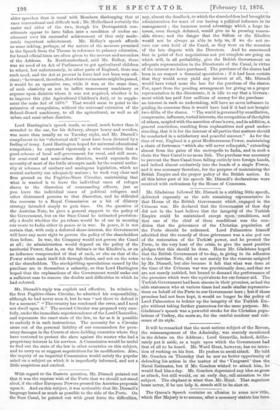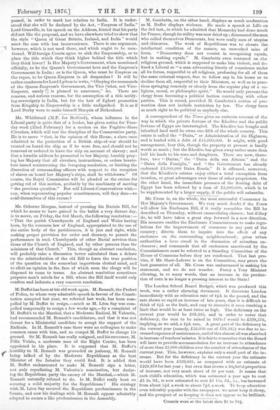The Queen's Speech contains an allusion to some new title,
which Her Majesty is to assume, after a necessary statute has been passed, in order to mark her relation to India. It is under- stood that she will be declared by the Act, "Empress of India." Lord Granville, in his speech on the Address, hinted that his party did not like the proposal, and we have elsewhere tried to show that the style " Queen of Great Britain, Ireland, and India " would meet the case with less inconvenience. There is one argument, however, which is not used there, and which ought to be men- tioned. Will foreign Courts agree to sink the Empressship, or to place the title which they think higher behind the title which they think lower? Is Her Majesty's Government, when mentioned officially, to be the Queen's Government here and the Empress's Government in India ; or is the Queen, who must be Empress on the rupee, to be Queen-Empress in all despatches? It will be rather cumbrous for Lord Lytton to write, "Obeying the commands of the Queen-Empress's Government, the Vice [what, not Vice- Emperor, surely 7] is pleased to announce," &c. There are reasons, and serious reasons, for the assumption of a title notify- ing sovereignty in India, but for the heir of Egbert promotion from Kingship to Emperorship is a little undignified. It is as if Lord Derby were to make himself Marquis of Birkenhead.



































 Previous page
Previous page